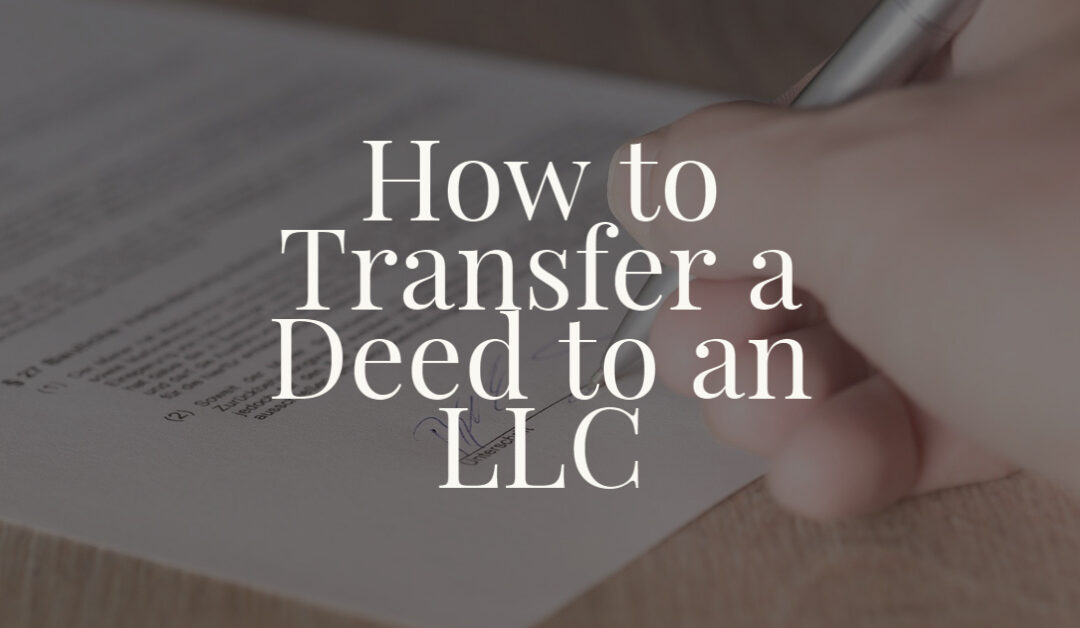If you own rental properties, opening an LLC to manage your real estate may seem like a good idea. Putting rental property in an LLC limits your liability in case of lawsuits from tenants. Even though you may have liability insurance to cover any issues, tenants can still choose to personally sue if you own the property in your name.
An LLC is a pass-through tax entity in that it does not have to pay its own taxes separate from the owner like a corporation. And in Texas, there is also a newer type of LLC called a Series LLC which allows you to own multiple properties with limited liability between each series. If you are sued for one property in Series “Y”, your property that is held in Series “X” is not liable.
Now that you can see the benefits of owning an LLC to hold your rental properties let’s look at how you make it all happen.
Apply for Tax Status
To form an LLC, you’ll need to apply for an EIN with the Federal government for taxation purposes. The EIN is a bit like a social security number for your business. It is how you will identify your LLC, along with its official name.
Apply For Business Formation in Texas
You will also need to file business formation documents for Texas. You can also obtain your entity status to make sure you are an official LLC before opening your bank account.
Open a Bank Account
Once you have your EIN and your business is established in Texas as an LLC, you can open a bank account and start keeping your personal finances separate from your rental business finances. A separation is important to establish your business as a legal entity that is separately liable from your personal business. All rent money, repairs you have done, taxes, security deposits, and pet deposits should go into this bank account and never your personal bank account.
Read Your Mortgage Terms
Before transferring your property into your LLC, you’ll need to know about your lender’s policies. Often, if you have a mortgage or deed of trust, there is a clause that if ownership changes hands, the loan is due immediately. Check the terms of your deed of trust to determine the bank’s policies about transferring property with a loan into an LLC.
If your LLC has an established credit rating, there should be no issue. However, if your LLC is not established, lenders will sometimes require you to sign a note saying that you are responsible for the loan if the LLC falls through.
If you just go ahead and sign the deed over to your LLC, there is a possibility that the lender will not like the transfer of ownership but will not make a fuss beyond sending you a letter. The current thought is that banks are too busy with owners who are in default to pursue an issue with property transfer, as long as you continue to pay your loan each month.
Consider the Deed
A general warranty deed covers your property from a judgment in the case of a dispute over who owns the property. If your property has a general warranty or even a special warranty deed, choose to transfer your deed with the same warranty deed to keep the chain of title intact.
Signing a quitclaim deed is not a good idea in this situation because if there is a claim on the property disputing ownership, you’ve lost your warranty protection. It also looks bad to potential buyers should you choose to sell your property down the road.
Transfer Property
When transferring property, you are making a capital contribution to your LLC and need to keep good records. You need to record the Fair Market Value (FMV) of the property right now and what you paid for it initially. Also, write down the depreciation so that you are ready when tax time rolls around.
Don’t Include Your Own House
Because of homestead law in Texas, your home is already protected by the Texas Constitution and Property Code against a judgment. There is no need for you to transfer your own home into the LLC to protect it. Furthermore, you don’t want to mix your personal financial obligations and investments in with your business assets.
Ask For Help
If you are considering making an LLC to separate your business property from your personal assets, keep in mind that an experienced real estate lawyer can walk you through the process. A knowledgeable attorney knows how to handle each step and any tax considerations that can help you along the way. At Jarrett Law, we work exclusively with real estate issues such as deed transfer and would love to hear from you.



Recent Comments